Ben: Ha, you certainly have. It is very interesting that, for writers, sometimes the hardest part is working out where to place yourself in the market. I think we’ll come back to that, but first you mention on your website (http://www.christopherbruntauthor.com) that the book started as a short story, where did the idea spring from and who are your influences?
Chris: My influences? Shakespeare, Bulgakov, Dostoevsky, Bernard Cornwell, Vonnegut, Gogol, Chekov, and lots more…the last book I read was totally different from these, it was Dark Places by Gillian Flynn, and I absolutely loved it. Ben: Yes, I’ve heard a lot of good things about Gillian Flynn, though I haven’t read anything of hers as yet. One for the reading pile I think. There are a lot of classic writers in your list of influences. One of the things I love about this book is the classic narrative style, it’s very traditional. Is this a style you use a lot and why did you choose it for this novel? Chris: For me, that sort of traditionalist voice provides so much artistic license than something trying to adhere to a particularly overt or contemporary style. The reason being, that it allows you to be completely neutral and to unravel a story in a very detailed and linear way, as you might expect in bygone novels. But it also allows for elements of surrealism and satire, which you can exacerbate against the backdrop of a very serious and formal tone. I think with Ralph and the Purple Fly I’ve opted for this classical style, set in a modern and contemporary world, while woven into these very surreal and satirical moments, because all those things together help to reinforce some of the dystopian conflict that I wanted to create with the mad scientist character and his bizarre adventurers. As a result, there are several different interpretations created out of these elements, which, aside from making the reader laugh, cry and generally be entertained, also forces them to think. Like you said, everything is held together by a recognisable and very traditional voice, which, without giving too much away, belongs to a narrator whose sanity is questionable and could be seen as totally unreliable but who is still someone you want to believe in. It goes without saying, that this was my intention and what I hoped to create, but now it’s down to you and the reader to see if it works. But yeah, I really enjoyed using this sort of traditional or classical narrative style because it did help to open up so many more creative possibilities. Ben: That’s a perfect description and I do love the style. It certainly does everything you’ve mentioned there. The book allows a lot to be perceived by the reader, which I think is great. It would be a great book for anyone in a book club; there’s lots of great room for discussion. Chris, like myself, you self-published your book with CreateSpace and KDP. How did you find that process and how has the response been so far?
Ultimately, it’s always going to be an uphill climb when you self-publish because you’re essentially doing all the work that the publisher and their marketing experts would usually do, not to mention avoiding the stigma of ‘vanity press’. But if you can put yourself out there and convince people that you’re not just another person with a laptop and internet connection who’s published their book, then you’ll do well. It’s a huge learning curve and if you’re proud of the finished product then you can be proud of the fact that your work is accessible to everyone and will always be out there for people to read. It doesn't matter if you've published in a traditional way or self-published. What I would say to anyone considering this route, is that if your book is good enough to be read then it doesn't matter how it finds its way to the readers. The trick for self-published writers like us is to always try to put yourself out there and you have to find a happy medium between writing and marketing. Ben: You mentioned earlier that the idea of genre and trying to place yourself can be tricky. How did you find that process and do you have any hints for the writers out there? Chris: It depends really, if your aim is to make money and you don’t know where to begin then I would suggest picking and sticking to a genre first and foremost. I would advise that you read everything you can in your chosen area and try to find something unique that you can write about. For me it was very different, I started with something unique and then wrote the story without worrying about genre or the commercial aspects, my only concern was being true to the original idea and the novel as a whole and I didn't want to compromise to confine the piece to a particular convention. I felt the story was strong enough without worrying about that sort of thing. Ben: So tell us a bit more about you. What drew you to writing? Chris: Once upon a time…it all began when my dad introduced me to Bernard Cornwell when I was about fourteen; it was his King Arthur trilogy; and, when he bought me my first Dostoevsky novel. Since then all I’ve ever wanted to do is write. I think it probably has something to do with a need to be creative and to recreate my own version of things, stories, people and ideas. I love the idea of writing something and then having someone read and reimagine it to the point where it sticks with them forever. As I say, it’s very much a romantic notion but I haven’t been able to shrug it off so far. Ben: That’s a great answer and one worth writing for, definitely. I've actually just finished reading the King Arthur trilogy myself. It’s a great set of books. So, if the folks reading want to find more stuff by you, is there more out there yet? Chris: Besides Ralph and the Purple Fly I have some short stories published online. I wrote these stories for a project called Writers in the Park and they vary drastically in content and style. I really would urge people to take a quick look at these, along with the work of other contributing writing, because it’s a great project with lots of interesting writers involved. The most recent addition even features stories written by Icelandic writers! Links to these can be found on my website. Ben: Well I’m chuffed you’ve mentioned that, especially as I’m one of the writers involved :] The readers of my site will be very used to hearing about the Writers in the Park project. Anything else you can tell us about? Chris: I wrote a couple of reviews and articles for an online magazine, run out of York St John University, called Neutral Magazine, which again you can access via my website. I really enjoy reviewing work by other writers so I recently started a blog dedicated to reviews, which you can read and subscribe to via my website. Basically, everything I have done so far is accessible via my website. I’m also on Twitter too so feel free to follow me at @CJBWriter. Ben: What’s the next project on the cards? Chris: I’ve recently gone back to a project I started about four years ago. I’ve written a lot of different things since then but at the time when I began working on this project and initially came up with the idea, I was too inexperienced and lacking in the tools to pull it off. It’s a two part series called The Lost Family. In its simplest form the series is about a family who become totally disconnected morally, physically and emotionally from one another. This is due not only to their personalities but also to the actions of the father in the family, Elliot Rosen. All the characters in the story find themselves gravitating towards the guy who, to cut a long story short, has suspended himself in a type of unconscious comatose state. The drama results from Elliot’s decision to do this, his actions are the catalyst and then the narrative goes on to follow each of the other family members who have to pick up the pieces. As you’ve probably guessed, similar to Ralph and the Purple Fly, there are certain some surrealist themes involved, though it’s very much a character driven story. It’s set in the 1930s so inevitably it’s influenced by some of the historical events of the time. Ben: Chris, that sounds really interesting. I especially liked the character driven elements of Ralph and Purple Fly, so I think this will be really strong. I’m really looking forward to reading it. Congrats again Chris and best of luck with promotion and with the upcoming Lost Family. You can grab your copy of Ralph and the Purple Fly here and if you want to know more about Chris have a look at some of the links below. Find Out More
0 Comments
My guest today is Adrian P Fayter. Adrian is a crime fiction writer, who has recently released his first book Death Benefit. 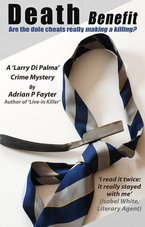 Ben: So firstly Adrian, congratulations on the publication of Death Benefit. I can honestly say it is the best self-published book I have read for some time. I'd call the book a crime thriller but it is a very different take from the standard cop drama. Can you tell us a bit about it? Adrian: Thanks, Ben, for your kind comments. I've been getting positive feedback from a wide variety of readers, and that’s a very encouraging thing for a writer. Death Benefit does follow certain crime writing conventions, but the protagonist/narrator, Larry Di Palma, works as a benefit fraud investigator. This allows me to create realistic investigation scenarios, but also means that Larry can stumble into danger in a believable way, because he doesn't have the same training or back-up team as a police detective. The book can be classed as a thriller, but it has a little less action than others in that genre. The atmosphere, characterisation and the cynical sense of humour of its narrator are all just as important to me. And there’s nothing less convincing than corpse after corpse appearing on the page... 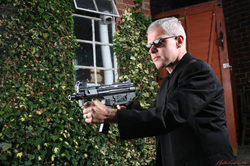 Ben: So what made you want to write this style/genre. Are there any big influences that drew you in? Adrian: I’ve been writing for a very long time, and, as many of us do, I’ve experimented with poetry and short stories, and written an early, semi-autobiographical novel. Crime fiction is, broadly speaking, the biggest selling genre in the UK, so it made sense to consider moving in that direction with a view to getting published. But crucially, the result is a book written very much in my own voice, and saying things that I want to say. Readers may spot the influence of the earliest of Len Deighton’s spy novels in different aspects of the book; not least in the free gifts that come with purchases made directly from me or my website. Ben: Haha, yes indeed. So what is it about Len Deighton's novels that you like and is there any particular essence of them you've tried to capture in your own style? Adrian: His early books brilliantly describe the bureaucracy and office politics of espionage. They are also very funny and economical with their descriptions. I love the start of Billion Dollar Brain: ‘It was the morning of my hundredth birthday,’ is the perfect way to introduce the narrator’s hangover and the way he has let down his girlfriend the night before. The drab form-filling and the seedy locations such as the multi-storey car park in Death Benefit are there to create a sense of realism; locations and setting are important in the way a writer creates a mood or atmosphere. Ben: I was really impressed with the dialogue in your book and the characters as a whole. Larry Di Palma is a great character. It had me laughing out loud in a few places. Did you do any research or use any techniques to get these characters voices to come through so clear? Adrian: I remember in one of our MA classes we were talking about our characters, and I said that Larry had been with me for so many years that I couldn’t remember how he started out; however, he is basically me. And I think it’s true that a lot of his cynicism, and the conflict he feels between laziness and professionalism are present in my own character. Other readers have asked me about research I did in order to create a realistic setting and story. Well, years ago I worked in various roles in three different Jobcentres, and although I have altered some of the jargon and procedures, I think the result overall reflects nicely the bureaucratic world of benefit claims and benefit fraud. I’m pleased with the authenticity of the setting and characters, because any novel depends upon them, no matter whether literary or genre fiction. 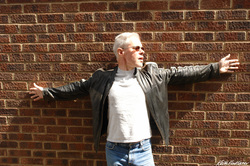 Ben: Tell us a bit more about your MA and experience. Would you suggest this route for other budding writers? Adrian: The feedback from fellow students and tutors can be invaluable, but it has to come at the right time for each individual writer. I think I benefited immensely from doing the MA course at York St John University because I was able to fine-tune a completed novel as well as present some new experimental work. The key is to start a degree or MA course when you are going to benefit the most from a lot of constructive criticism. That could be as a mature, experienced writer or as a complete beginner: it depends on the individual. Ben: You self-published your book with Matador. Can you tell us a little about that? Adrian: I had strong interest from three different literary agents, but ultimately none of them was successful in taking the book into a publishing deal. However, I have since become a bit of a convert to the idea of self-publishing, which offers many potential advantages to any writer. Ben: Wow, that's great. So what are these advantages that made you go with self-publishing and do you have any top tips for people considering self-publishing? Adrian: My top tips for self-publishing can be seen on my website, but the most important one is probably this: ‘Don’t be in too much of a hurry, don’t set unrealistic deadlines, and always consider quality of product over speed of publication.’ The processes of publishing, marketing and selling inevitably take up as much time as writing itself. For example, despite the fact that my completed manuscript had been reviewed by different literary agents and by my university tutor, I still ended up doing four further proof reads before I was happy to go to press. I really hope readers haven’t spotted any more typos in the final product! As to advantages, well, if I sell a book directly from my website, book launch or other event, I keep 100% of the cover price. If a publisher sells via a bookshop, I get about 30%. Ben: So the book you've released mentions a sequel - can you tell us anymore about the next Larry Di Palma adventure? Adrian: The next novel, Live-in Killer, is currently in preparation – a taster is given at the end of Death Benefit in both its printed and e-book forms. Readers can also find a short story (with the promise of more to come) at the Rowntree Park Words from a Bench project. Ben: Thanks so much for your time Adrian and all the best with the next novel. Adrian: Thanks, Ben, and happy writing to you, too! You can find more writing and information about Adrian at:
Website: http://crimebooks.wordpress.com (Buy paperback copies here, and learn about crime writing, self-publishing and more) Amazon: http://www.amazon.co.uk/Death-Benefit-Adrian-P-Fayter/ (Buy paperback, download for Kindle and read reviews here) 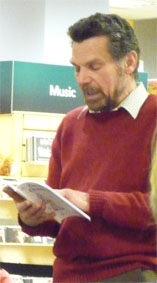 My guest today is author Nick David, N.E.David as he is known. Nick is a York based writer, local to me and joins me to talk about his work as part of York's community of authors, his new book BIRDS OF THE NILE and his upcoming work. Ben: So firstly Nick, congratulations on the publication of 'BIRDS OF THE NILE'. It's a very interesting read. Before we get stuck into the details, let's get a bit of background. When we've spoken in the past Nick, you've told me that you started writing sometime ago, but stopped and now you're on a pretty determined return to the art. What is it that draws you to writing? Nick: Writing is important to me in that it gives me purpose, it helps me make sense of my life but most of all, it’s the stories and the characters. I have a whole host of them inside my head and they won’t go away until I’ve got them out and onto the paper. Now I’ve come back to it I’m driven, Ben, and there’s no getting away from it. Ben: Nick, you're an author based in York and from visiting your website (http://www.nedavid.com/) it's obvious that you do a lot of work with authors in the area. Can you tell us a bit about your involvement? Nick: Yes, I’ve been a member of York Writers Group for quite a while and more recently I became involved with York Authors. They were set up early in 2013 to promote the work of professional authors based in the city. I also appear regularly at Literature Festivals and open mics in the region so I meet quite a few fellow writers. Ben: Am I right in thinking that you also have a part in York Literary Festival, which has just released its programme for this year? Nick: Yes, thank you for reminding me! For my sins, I’m a member of the committee and we’re coming up to a very busy time with the programme just launched on 6 January. Last year we were lucky to get some big names, including the Poet Laureate. This year will be just as good, if not better, so keep an eye out for what’s on. The Festival runs from March 20th through to March 31st and the events are bound to be popular so it’s best to book well in advance. You can get the details from the website, www.yorkliteraturefestival.co.uk. Ben: So, your new book 'BIRDS OF THE NILE' is set in Egypt and involves the 2011 revolution, though it's more complex than a simple action or thriller. Can you tell us what drew you to setting a story in Egypt at this time?  Nick: The background to this is that my wife and I went to Egypt to celebrate an important wedding anniversary in 2009. Being a writer, I naturally took a notebook and a pen and kept a diary. At some point a plot occurred to me and when we got back I started to write it up. But it didn’t gel and l put the half-finished manuscript away in a drawer. When the revolution came along, it reignited my interest and I realised that the power of those dramatic events could significantly enhance the story so I rewrote it with that in mind. Ben: That is interesting. So what pulled you away from making it a more conventional type action plot? Nick: It never started off that way and so it never became one. The focus was always on the relationship between the three main characters – the fact that it takes place during a revolution merely causes their actions and decision-making to appear more important. Ben: Interestingly, the story is set predominately on a cruise ship, and you work with a fairly large cast of characters to create that feel. Did you find that challenging? Nick: No, not at all. Apart from the three main protagonists, the other characters all serve an important purpose. Mrs Biltmore plays a key role in affairs, for instance, and it’s interesting that Blake begins by disliking her. I often think of the other (British) passengers as a kind of Greek chorus – they represent that section of opinion which is indifferent to the plight of the Egyptian people and concerned only with their own safety. This sets them apart from Blake and allows him to stand out when it comes to the crucial part of the story. Ben: The lead character is Michael Blake. What gave you the inspiration for this character and could you sum him up for those who are yet to read the story? Nick: I always had it in mind that the main character would be a retired bird-watcher who subsequently went blind. The idea that your greatest pleasure in life can be denied you by some random event fascinated me but it was the revolution that persuaded me to make him an ex-diplomat. It was then that his character fully formed in my head and gave me the impetus to pick the piece up again. As to summing him up, that’s difficult. If I could tell you about Michael Blake in a few short sentences, I wouldn’t need to have written the book in the first place! Because that’s what the book is really about - explaining Michael Blake - and he’s complicated. The point is that he’s just a fairly ordinary person who becomes caught up in events that cause him to do something exceptional. 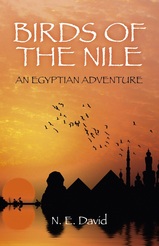 Ben: Very true. You also have a back catalogue of novellas, though BIRDS OF THE NILE is your first novel. Can you tell us a bit about your other work? Nick: Of course. I have three short novellas in print, none of them related except by way of length. They grew out of the fact that I began to find short story telling restrictive and I couldn’t express what I wanted to say in less than 20000 words. The stories didn’t need any more than that either, so they finished up as novellas. They’re each written quite differently too, and reflect the fact that I was subconsciously experimenting with alternative styles. I also have other, as yet unpublished, novels hidden away and when the time is right, my intention is to fetch them out and bring them up to speed. Ben: Are you working on anything at the moment? Nick: Yes, I spent the summer producing the first draft of a new novel set beside a lake in Sweden but I’ve had to set that aside for the time being as my typist broke her arm! In the meanwhile I’ve gone back to an earlier work and I’ve set myself the task of rewriting it with a view to bringing it out in 2015. The main protagonist is called Frank and in the same way that BIRDS OF THE NILE is about explaining Michael Blake, AS DAD LAY DYING is all about explaining Frank Johnson. AS DAD LAY DYING is a working title, by the way. I’m not sure I’m awfully fond of it but for the moment I can’t think of a better one. When it comes to the point of publication I’ll have to put my thinking cap on - but the rewrite and the story have to come first. Ben: Thanks so much Nick and all the best with your 2015 deadline, we'll look forward to it. Nick: Thank you for inviting me, it’s been a pleasure. You can find BIRDS OF THE NILE at:
http://amzn.to/1dtTis (UK) http://amzn.to/1iCoudy (US) Or through Nick’s website at http://www.nedavid.com You can also follow Nick on Twitter at http://www.twitter.com/NEDavidAuthor Or join him for 'Writing Life' at http://www.nedavid.com/writing-life 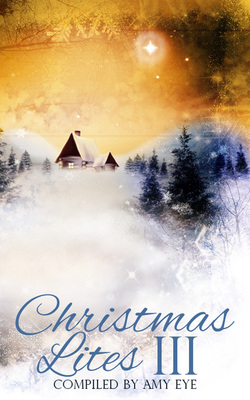 So folks its here. A fantastic collection of short stories with a Christmas theme and, best of all, the money raised goes to this excellent charity against domestic violence: http://www.ncadv.org/ So go find a e-copy or paperback on Amazon now. Its'll be your good deed for Christmas. Get yourself on Santa's 'nice list' now :]
|
AuthorBen Warden - Editor of the #SFFiction project and author of 'Life Without', which made the top ten literary fiction e-books on amazon. Categories
All
Blog Archive
January 2020
|

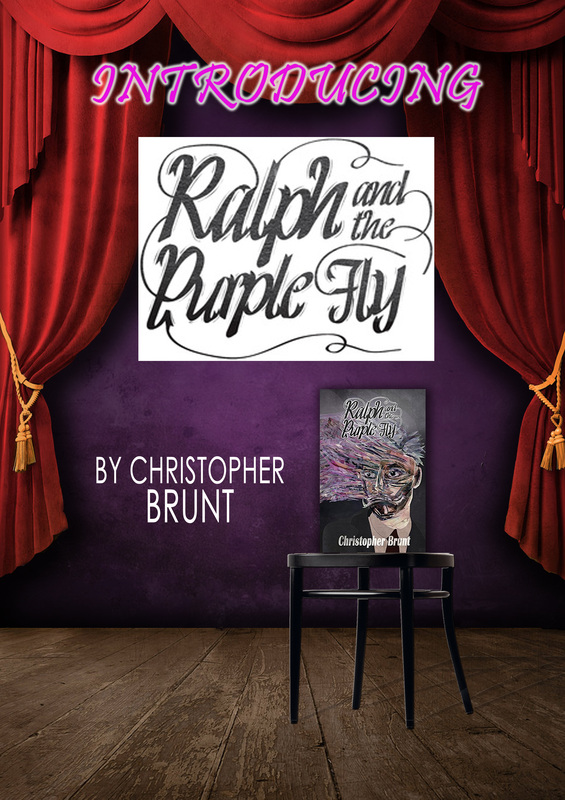
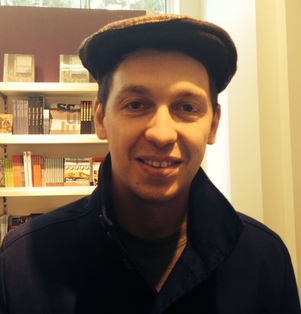
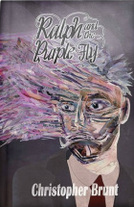
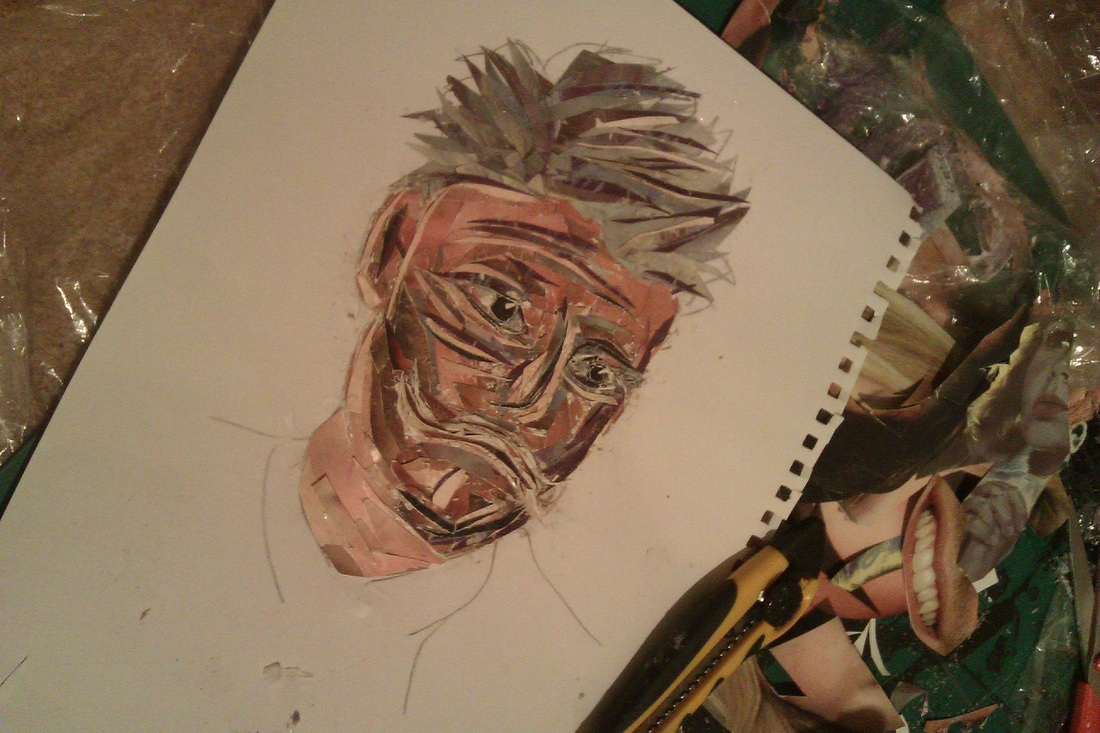
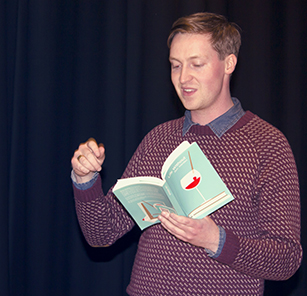
 RSS Feed
RSS Feed
